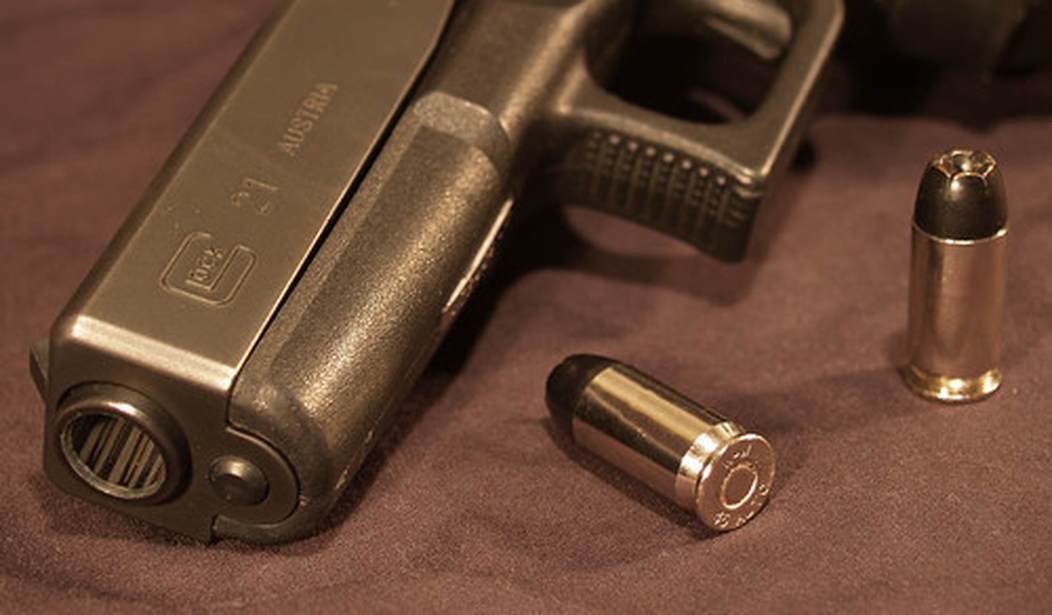Legislation prohibiting the use and possession of so-called Glock switches easily passed the Alabama House of Representatives on Thursday, though the bill still has one more stop in the state Senate before heading to Gov. Kay Ivey's desk.
Unlike the first vote in the Senate, which was unanimous, there was some opposition to the measure when it was brought up on the House floor... but not nearly enough to derail its passage.
Representatives approved the bill by a vote of 77-23.
SB116, brought forth by Sen. Will Barfoot, R-Montgomery, would make possessing any part or combination of parts designed and intended to convert a pistol into a machine gun, often known as Glock switches, punishable by a term between 366 days and 10 years, according to state code.
It was approved with an amendment that would put the proposed law into effect immediately if it were signed by Gov. Kay Ivey.
The Senate will have to concur with that change, but given the unanimity SB116 received in the Senate the first time around, I suspect that it won't be difficult for the upper chamber to sign off on the House amendment. Ivey has been championing the ban since her State of the State address earlier this year, so it's virtually a given that the ban will soon be in place.
Many Republican lawmakers who support of the ban have argued that the measure isn't truly about gun control, pointing to the fact that SB 116 simply aligns state statute with laws already in place at the federal level. Democrats, meanwhile, have pointed to the use of the machine gun conversion devices as one of the primary drivers of the record-high number of homicides recorded in Birmingham last year, claiming that the state-level ban will make the city and state a safer place.
Rep. Juandalynn Givan, D-Birmingham, thanked Ensler and Barfoot Thursday for their work on the bans, referencing the impact these devices had had in her district.
"Unfortunately, this is breaking news almost every day in the city of Birmingham,” she said.
“...This is not about the second amendment; nobody is trying to take away anyone’s rights.”
She said that the Glock switch issue had become so prevalent in Birmingham that she had heard of a group of young men who had killed multiple individuals referring to themselves as “the Switch boys.”
That sounds awfully apocryphal to me, and I'd be curious to see if the Birmingham police could back up Givan's claims with the names of any of these "Switch Boys", especially since they've committed multiple murders.
While the illegal conversions may be taking place, I'd also argue that these devices aren't really what's behind Birmingham's soaring homicide rate. Behind every stabbing or shooting is someone who was willing to take a life, and often these individuals are already well acquainted with the criminal justice system. There's at least some evidence that the judicial system in Birmingham is treating these high-risk individuals with kid gloves, with the ongoing case of Malik Quintawn Austin serving as a prime example of the coddling taking place in the courts.
Austin is currently facing murder charges in connection with the February 15th shooting death of 21-year-old Tre’Von Nyheim Douglas. As it turns out, Austin was released from jail about 24 hours before Douglas was killed, and that was just the most recent slap on the wrist delivered by the local courts.
The day prior to Douglas’s killing, Austin had been released from the Jefferson County Jail after Judge Stephen Wallace had continued his probation on a previous robbery conviction.
Austin on Sept. 29, 2024, pleaded guilty to first-degree robbery. He was sentenced to 20 years with one year to serve but was granted time served and was freed.
He was placed on supervised probation which Wallace later amended to unsupervised probation.
On Nov. 4, 2024, Birmingham police arrested Austin for being a convicted felon in possession of two pistols.
Court records show Austin was arrested again on Jan. 29, 2025, for being in possession of a stolen pistol.
On Feb. 13, records show, the judge issued an order continuing Austin’s probation. A probation review was set for March 10 before Wallace.
Austin was released from jail, at 11:37 a.m. Feb. 14. Douglas was killed just over 24 hours later.
Time served for first-degree robbery. Unsupervised probation despite being arrested twice on felon-in-possession charges after he was released. Judge Wallace had multiple opportunities to rescind Wallace's probation and return him to prison, and could have chosen to hold Wallace in custody without bond after either of those arrests as well. Instead, he didn't even return Austin to supervised probation after those arrests, and he spent just two weeks in jail after his arrest for being a felon in possession of a stolen pistol before he was released and told to show up for a court hearing a couple of weeks later.
Combatting violent crime involves going after those who are committing those crimes, not imposing a hardware ban and hoping for the best. Adding another law to the books is useless when judges are giving repeat offenders a pass, and I highly doubt that SB 116 is going to be the panacea Alabama politicians believe it to be.








